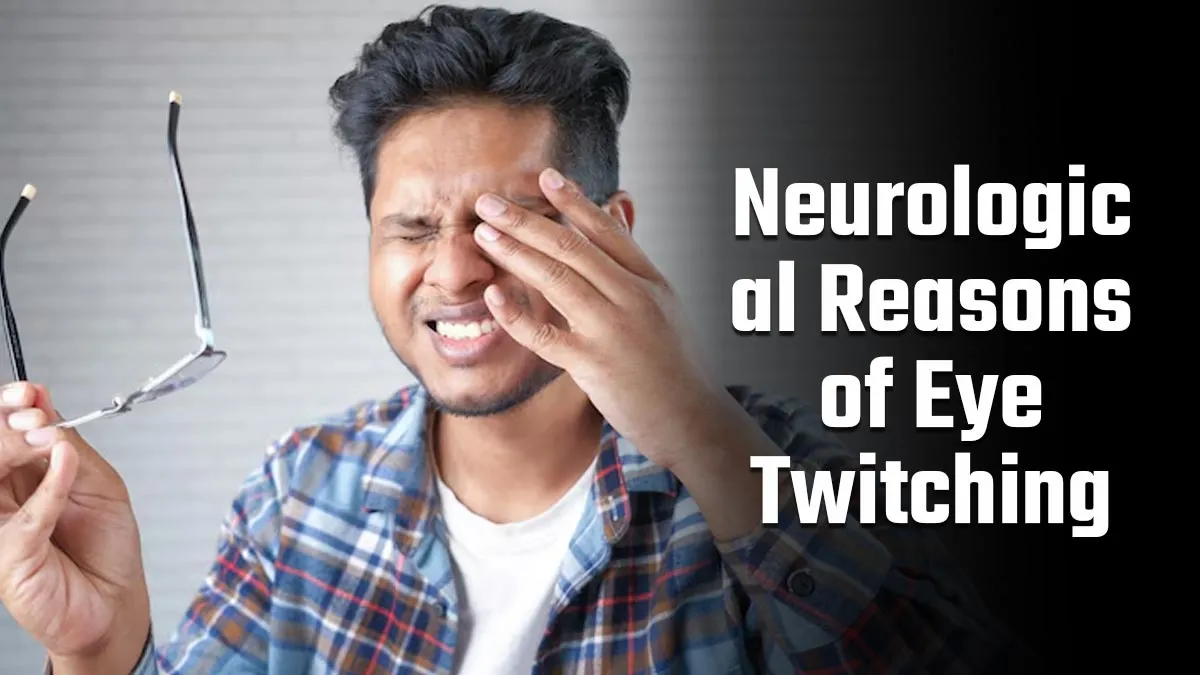
Have you ever felt your eyelid suddenly flutter or twitch uncontrollably? This common annoyance, called eye twitching (or myokymia), is usually harmless and fades quickly. But when it persists, you might wonder: Could there be a deeper neurological reason behind it? While stress or caffeine often trigger temporary twitches, certain conditions linked to the nervous system can also cause persistent spasms. Read ahead to explore the possible neurological and lifestyle-related causes of eye twitching, with insights from experts to help you understand when it’s time to seek care.
Table of Content:-
1. Lack of Sleep: A Silent Trigger
View this post on Instagram
According to Dr Bhanu Pangtey, Eye and Retina Surgeon, Shubhanu Eye Hospital, Haldwani, the most common culprit behind eye twitching is poor sleep. “Look, the most common cause is when you don’t get proper sleep at night. Sleep properly and put your phone aside,” he advises. Screen time before bed disrupts sleep cycles, straining the eyes and triggering spasms.
Key Tips:
Aim for 7–8 hours of uninterrupted sleep.
Avoid screens 1–2 hours before bedtime.
Practice calming rituals like reading or meditation.
2. Stress, Caffeine, and Alcohol: Modern-Day Triggers
Young adults, in particular, face lifestyle-driven triggers. Dr. Pangtey notes, “Youth who take a lot of stress, consume alcohol, or drink excessive coffee often experience eyelid flutters.” Stress increases cortisol levels, overstimulating nerves around the eyes. Similarly, caffeine and alcohol dehydrate the body, worsening muscle spasms.
A 2020 study in Neurology Clinical Practice found that adults consuming >200mg of caffeine daily (2–3 cups of coffee) were 30% more likely to report frequent eye twitching. Moderation is key!
Quick Fixes:
- Limit coffee/alcohol intake.
- Practice stress management (e.g., yoga, deep breathing).
- Stay hydrated to counteract dryness.
ALSO READ: Can High Blood Sugar Damage Your Kidneys? Here Is What An Expert Has To Say!
3. Dry Eyes: More Than Just Discomfort
-1742470990838.jpg)
Dry eye syndrome, often overlooked, can irritate nerves and cause twitching. “If you feel sand-like grittiness in your eyes alongside twitching, dry eyes could be the cause,” says Dr. Pangtey. Aging, screen use, or medical conditions reduce tear production, leading to chronic dryness.
Solutions:
- Use preservative-free artificial tears.
- Take screen breaks (20-20-20 rule: every 20 minutes, look 20 feet away for 20 seconds).
- Consult a doctor for prescription eye drops if symptoms persist.
4. Blepharospasm: A Neurological Culprit
In rare cases, persistent twitching could signal blepharospasm—a neurological disorder causing involuntary eyelid muscle contractions. Dr Pangtey explains, “In old age, blepharospasm worsens over time, sometimes making it hard to open the eyes. Neurological evaluation and Botox injections may be needed.”
This condition stems from faulty signals in the brain’s basal ganglia, which controls muscle movement. Early diagnosis is critical to prevent vision obstruction.
Also Read: World Tuberculosis Day 2025
Action Steps:
- Seek a neurologist if twitching lasts weeks or affects both eyes.
- Botox injections can temporarily paralyze overactive muscles.
- Medications like anticonvulsants may help in severe cases.
When to See a Doctor?

Most eye twitches resolve with rest and lifestyle tweaks. But consult a specialist if you notice:
- Twitching lasting >2 weeks.
- Spasms spreading to other facial areas.
- Difficulty opening the eye or vision changes.
As the expert emphasises, “Persistent twitching paired with redness, swelling, or discharge warrants immediate attention to rule out infections or neurological issues.”
ALSO READ: Is Acne and Hair Loss Linked To Hormones? Expert Weighs In
Conclusion
Eye twitching, while often harmless, can sometimes hint at underlying issues ranging from lifestyle habits to neurological conditions. By addressing common triggers like stress, caffeine, and lack of sleep, you can often reduce or eliminate the spasms. However, if twitching persists, spreads, or interferes with your vision, it’s crucial to consult a healthcare professional for a thorough evaluation. Taking proactive steps to care for your eyes and overall well-being can help you maintain comfort and clarity in your daily life.
Also watch this video
How we keep this article up to date:
We work with experts and keep a close eye on the latest in health and wellness. Whenever there is a new research or helpful information, we update our articles with accurate and useful advice.
Current Version
